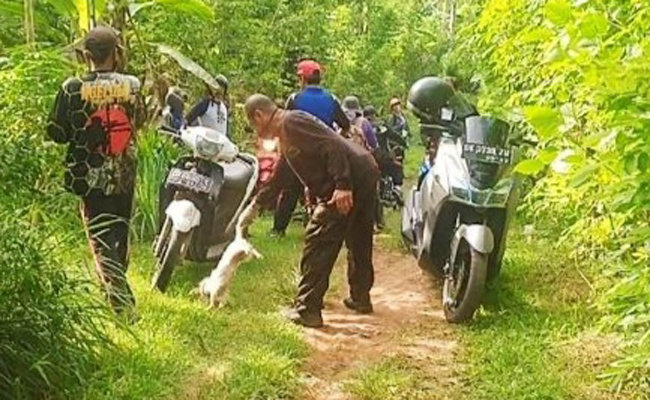Amid the increasing number of rabies cases in the area, the Jembrana Health Agency has proposed eliminating unowned street dogs in order to curb infection rates.
Jembrana Health Agency Head I Made Dwipayana told a local news outlet that the current supply of anti-rabies vaccinations is still insufficient to stem the tide of a soaring number of rabies-infected dog bites in the region.
He revealed that, at some point in the past few months, around 100 people were bitten by rabies-infected canines, with one dog, on average, capable of biting three people. Dwipayana said that Jembrana has been declared a rabies red zone, signifying alarming infection levels.
“If possible [we] suggest eliminating street dogs. If it’s confirmed that it is a street dog, eliminate it. If [someone] owns it, then it gets vaccinated,” he said.
Local outlets reported that in five Jembrana districts, 22 villages and sub-districts have been declared rabies red zones since April this year due to low vaccination rates. Some known rabies cases involve a toddler, who died from the disease, and a local politician.
According to official data, 46,955 dogs have been recorded to populate Jembrana as of May 18.
Bali Animal Welfare Association (BAWA) founder and director Janice Girardi told Coconuts that should there be enough budget for a large-scale elimination operation, then it should be used for robust and methodical mass-vaccination schemes.
“It is very concerning that Bali continues to have so many rabies cases, but for this to mean that all outside dogs – or what they refer to as wild dogs – to be killed would be an absolute tragedy. The term liar [Indonesian] means wild, but in reality there are no feral or wild dogs in Bali,” said Girardi, adding, “There are community dogs or dogs living on beaches or in forests but they are still dependent on humans or human scraps for their sustenance.”
Furthermore, Girardi reiterated that unvaccinated dogs are the real problem and thus everyone should work together towards getting all of Bali’s dogs vaccinated and continuing to vaccinate new puppies as they enter the population.
“We have to establish population stability and herd immunity in Bali. It is more important now than ever,” she said.
In addition, BAWA’s Girardi said that achieving herd immunity requires vaccinating over 70 percent of all dogs within a population.
“This also means not killing vaccinated dogs, not throwing away unwanted puppies and dogs into the streets and beaches, banning the breeding of dogs which introduces more dogs into the population that also often end up discarded when sick or no longer wanted. All of this contributes to destabilizing the population,” she said.
Read also: Who killed the Berawa beach dogs?




